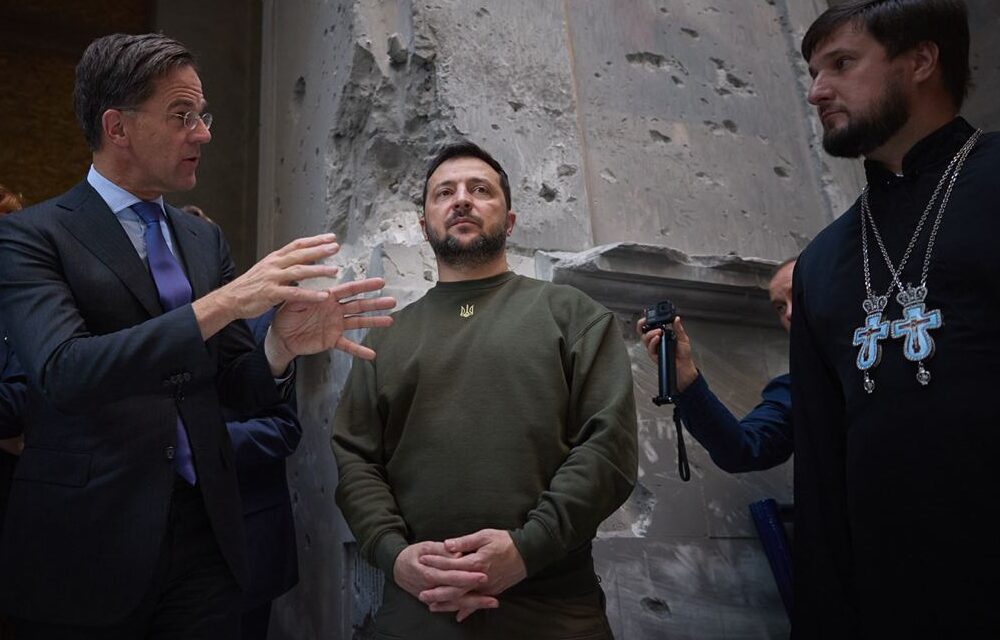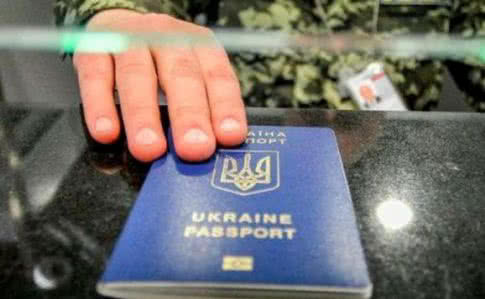Editor's note: On 15 October, President Volodymyr Zelenskyy stripped Odesa Mayor Hennadii Trukhanov of Ukrainian citizenship after confirming he held a Russian passport, instantly ending his 11-year rule over Ukraine's largest port city.
Trukhanov had governed Odesa while maintaining ties to organized crime figures from the city's notorious 1990s "oil mafia" and parking millions in luxury London real estate—yet corruption charges involving far larger sums had never removed him from power.
Following the citizenship revocation, Zelenskyy placed Odesa under military administration, appointing a brigadier general to run the city and bypassing the elected city council entirely.
The grounds for this move are opaque: though security concerns were cited, Odesa remains a functioning city, not one under siege.
Few will mourn Trukhanov's downfall. Yet how he was removed raises serious constitutional questions that extend far beyond one corrupt official, argues human rights lawyer Volodymyr Yavorskyy, Program Director at the Center for Civil Liberties.
Zelenskyy revoking Odesa mayor Trukhanov's citizenship on 15 October violates human rights and creates dangerous legal precedents. While a military administration might address security concerns in a frontline city, depriving someone of citizenship serves no security function.
Citizenship and military administration are entirely different legal mechanisms—yet Ukraine's current practice conflates them, using citizenship revocation as punishment rather than legitimate state action.
Linguistic manipulations
Article 25 of Ukraine's Constitution prohibits the deprivation of citizenship without exception. The Law on Citizenship, however, uses ambiguous terminology—employing synonyms like 'termination of citizenship' to achieve the same effect through linguistic manipulation. This is a way to circumvent the Constitution.
This practice began under President Petro Poroshenko, who first deprived people of citizenship on the grounds of acquiring another one, and several dozen individuals have already been affected.
Editor's note. Examples of selective enforcement:
Under Poroshenko:
- In 2017, Poroshenko stripped former Georgian President Mikheil Saakashvili of Ukrainian citizenship while he was abroad—ostensibly because Saakashvili concealed criminal cases in Georgia when applying for citizenship, though Poroshenko had invited him to Ukraine knowing about those cases.
- The same year, Poroshenko deprived Radical Party MP Andriy Artemenko of citizenship,
- and in 2016, businessman Viacheslav Platon was deported to Moldova after his Ukrainian passport was declared invalid.
Under Zelenskyy, apart from Trukhanov case:
- Since early 2023, at least 19 hierarchs of the Ukrainian Orthodox Church of the Moscow Patriarchate lost their citizenship over Russian passports—yet many continue serving in Ukraine despite their legal limbo.
Not touched:
- Yet oligarch Ihor Kolomoiskyi possessed multiple passports, as did fugitive ex-officials from Viktor Yanukovych's entourage residing in Russia with Russian citizenship—none were touched.
The Law on Citizenship requires two conditions to be proven beyond doubt:
- That the person has another citizenship;
- That the person acquired this second citizenship voluntarily.
The law also lists several exceptions in which acquiring another citizenship does not entail the loss of Ukrainian citizenship—for example, when it happens automatically or without the person's consent.

Ukraine took a step toward authoritarianism—and most will miss it because the mayor was corrupt
Procedural violations in practice
In Trukhanov's case, to determine "voluntariness," the State Migration Service was required to request information proving that he had voluntarily obtained another citizenship. It did not do so.
The Law on Administrative Procedure also obliges the authority to involve the person concerned in the case, to let them review the documents and submit their own. Trukhanov never even received the presidential decree, let alone the decision of the Migration Service or the Citizenship Commission under the President.
Missing legal recourse
Trending Now
Unfortunately, the existing procedure makes it impossible for an appeal against a presidential decree to result in its cancellation. A person deprived of citizenship, therefore, has virtually no legal recourse. This is why the decision regarding Trukhanov constitutes a human rights violation.
Selective enforcement
In my view, the deprivation of citizenship due to possessing another citizenship is entirely wrong. More than eight million Ukrainians have left the country since the 1990s, and a similar number have left since the start of the full-scale war. Many have since obtained citizenship in other countries.
Several million residents of the occupied territories have been forced to accept Russian citizenship. In practice, we are expelling these people from Ukraine's legal space.
Such a process is inevitably selective, echoing Soviet-era practices of punishing individuals by stripping citizenship for political reasons.
Ukraine's migration policy is gradually moving toward restricting access to citizenship, even though obtaining it is already extremely difficult. Security concerns related to dual or foreign citizenship should be addressed by regulating access to government positions and other sensitive roles, not depriving people of citizenship.
Editor's note. The opinions expressed in our Opinion section belong to their authors. Euromaidan Press' editorial team may or may not share them.
Submit an opinion to Euromaidan Press

